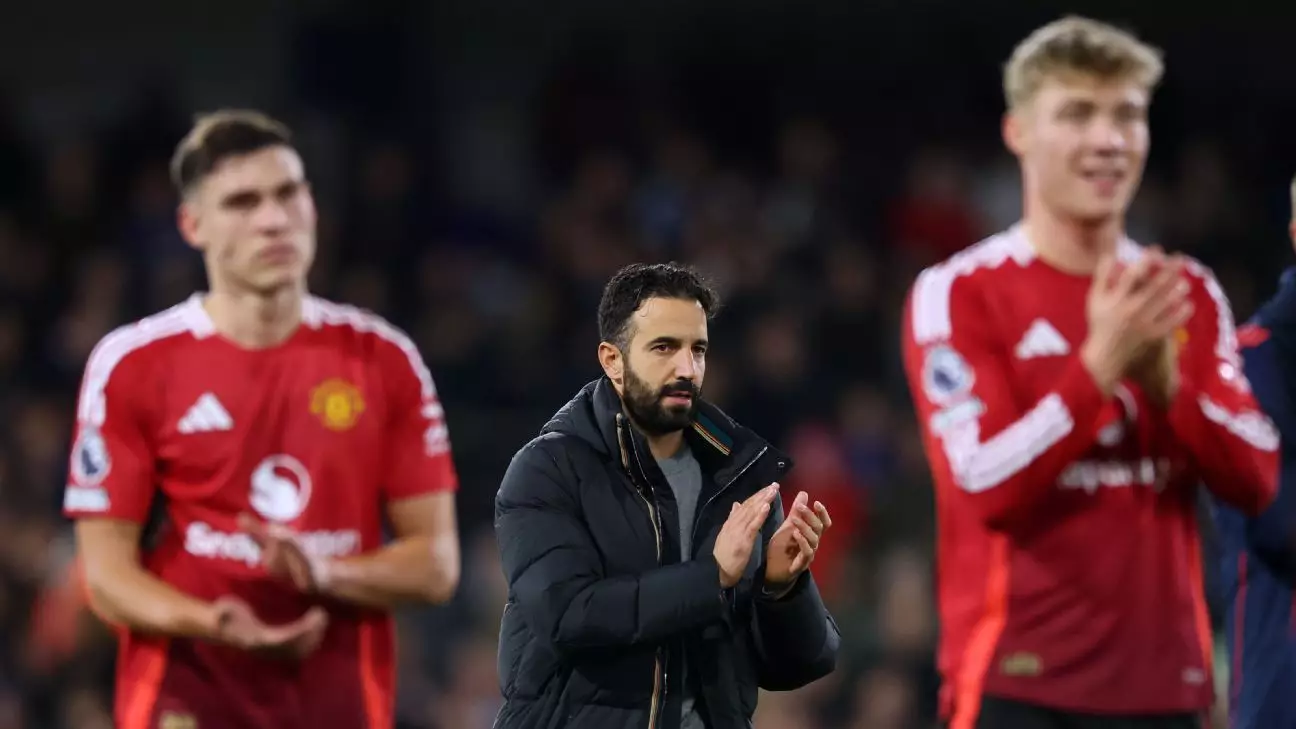Rúben Amorim’s inaugural game as the head coach of Manchester United yielded a mixed bag of results, illuminating both the immediate challenges and long-term ambitions he faces in revamping the club. Despite an electrifying start against Ipswich Town with Marcus Rashford scoring just 81 seconds into the match, the 1-1 draw has sparked discussions about the growing pains associated with Amorim’s tactical overhaul. This transitional phase reveals the stark contrast between his football philosophy and the existing mindset of the players, necessitating patience and resilience from both the team and its supporters.
In the aftermath of the match, Amorim expressed that Manchester United can expect to “suffer for a long period” as his methods take hold. The immediate reactions to such comments reveal a world of uncertainty within the fanbase. While some supporters echo his sentiments of patience, many others are less than thrilled with the prospect of enduring mediocrity during a phase of transformation. It’s a tough pill to swallow for a club steeped in a tradition of winning, but Amorim’s honesty resonates with the reality of modern football—change is rarely instantaneous, particularly in a high-stakes environment like Old Trafford.
The draw against Ipswich Town, while head-shaking for some, shines a light on the vulnerabilities that exist within the squad, vulnerabilities that Amorim must navigate with both tact and authority. With only a few days to implement his tactics in training, Amorim’s choice of a 3-4-2-1 formation underlined the difficulties faced by players accustomed to the preceding system under Erik ten Hag.
One alarming takeaway from the match and Amorim’s post-game comments was the evident cognitive overload experienced by the players. He highlighted that the players began to “overthink” their roles on the pitch, a consequence of the rapid changes in tactics and structures introduced to them in such a short period. Amorim’s choice to instruct Diogo Dalot and other defenders to recalibrate their approach, moving from attacking duties to a more defensive mindset, demonstrates the complexity of transforming the squad’s tactical framework.
He acknowledged the necessity of instilling a clear structure within the team—stating, “When they start thinking about the structure, they will play so much better.” This statement reflects both his ambition and the inherent difficulties of changing entrenched habits. A lack of fluidity exists while players grapple with their new responsibilities, a situation exacerbated by the ongoing rotation of training sessions.
Looking Ahead: Navigating the Fixtures
Looking forward, Manchester United faces a grueling schedule filled with domestic and European competitions. Amorim’s strategic rotations are not merely a tactical choice; they are a lifeline for the players who will require time on the training ground to embrace new methodologies while still competing at high levels. The inevitability of needing to sacrifice some matches for broader, longer-term gains is a delicate but necessary balancing act.
Incorporating a system that allows players to acclimatize to change while still remaining competitive in the short term is paramount. Amorim is acutely aware of the magnitude of the task at hand. As he mentioned, “with this schedule, we need to rotate the team.” The increased rotation places additional strain on the already weary squad, yet it may prove essential for the learning curve that lies ahead.
Rúben Amorim’s early days as the head coach of Manchester United are marked by urgency, understanding, and the inherent friction between expectations and reality. His candid acknowledgment of the challenges, paired with a commitment to instill a new tactical identity, highlights a journey that requires both patience and trust from the fanbase. The upcoming fixtures will serve as crucial tests not only for the players to adapt but also for Amorim to impose his philosophies effectively.
While the prospect of suffering during this transitional period might present a daunting picture, it’s essential to remember that every enduring legacy must start from humble beginnings. Building a framework that fosters long-term success might lead to the ultimate reward: a Manchester United that thrives on its rich history while embracing a vibrant and effective style of modern football. Only time will reveal the true potential of Amorim’s vision for the club, but the hope remains that the sacrifices made now will yield fruitful results in the future.

